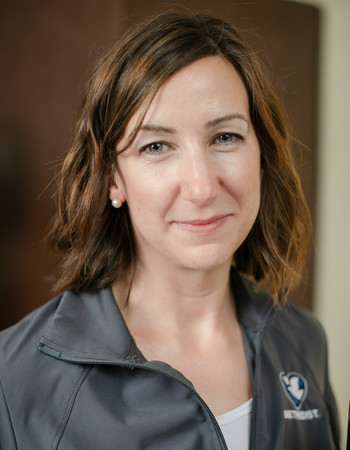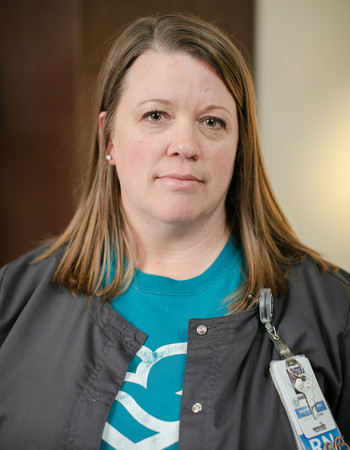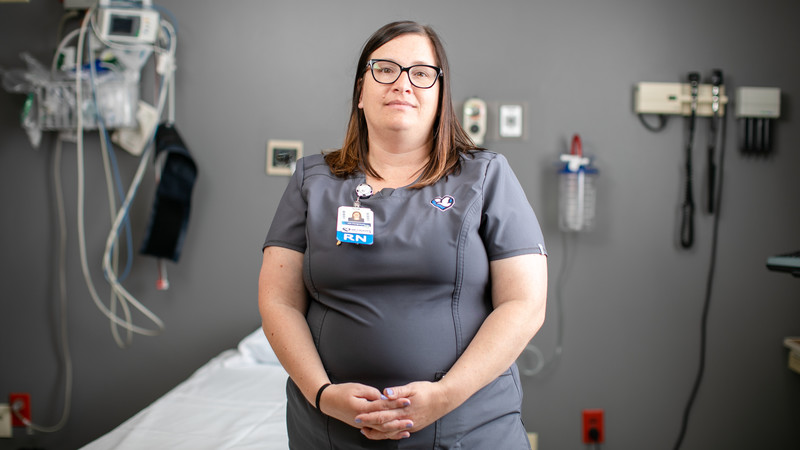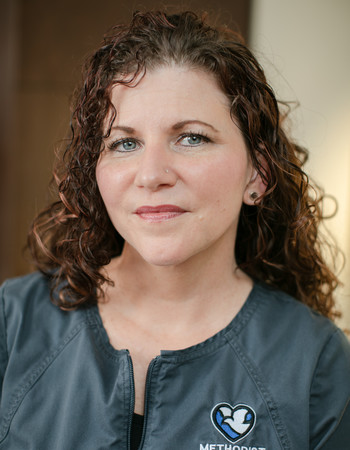The Meaning of Care Magazine
SANE/SART: From Trauma to Triumph
Published: July 22, 2019
SANE-A
Providers With Passion
Stories like this unfold daily in the Omaha area, and Methodist’s growing SANE/SART program is a leader in providing needed care.
Methodist providers saw roughly 350 survivors at its hospitals in Nebraska and Iowa last year.
Jen Tran, Methodist’s SANE/SART Omaha coordinator, said survivors who come to Methodist can expect to be treated by specially trained trauma-informed providers who will listen.
“Survivors need to know that they’re heard and believed,” she said.
A Sexual Assault Nurse Examiner (SANE) is a medical professional who is trained to treat survivors and collect evidence.

They’re part of a Sexual Assault Response Team (SART) that includes a physician, a survivor advocate and law enforcement.
Methodist’s forensic nurses perform SANE/SART duties on call in addition to their regular nursing assignments. They’re passionate providers who feel compelled to help someone during what is likely the most traumatic experience of their life.
Shelley Hultman, BSN, RN, was inspired to become a forensic nurse after she was sexually assaulted in college. She described treating survivors as “almost therapeutic.”
“I absolutely love being there at their worst, building them back up and letting them know it’s not their fault – that they can fight this battle,” she said.
Lauren Awe, BSN, RN, SANE-P, agreed. “I love being the person to say, ‘You are not alone.’”
Taking Back Control
"Survivors should know that they’re in charge of the exam," said Jill Ferguson, MSN, RN, SANE/SART coordinator at Methodist Jennie Edmundson Hospital in Council Bluffs. "That’s key, because it’s possibly the first time they’ve regained such control since the assault."

During an exam, a nurse will ask about medical history and collect evidence like clothes, fingernail and oral swabs, and bodily fluid. They may also photograph injuries.
The process can take several hours, though the nurse can go at the pace most comfortable for the survivor.
Treatment may include preventative measures for sexually transmitted diseases or unwanted pregnancy.
Forensic nurses offer emotional support to survivors and may later provide expert testimony during legal proceedings.

One of the hardest parts is often not knowing what happens to survivors after they leave the hospital, said Liz Dunn, BSN, RN. “You see them at the low, and you hope they can regain footing in their life.”
“Coming in for an exam is a really, really tough time for these survivors,” added Carla Idrees, BSN, RN. “At the same time, it can be really beautiful. It’s one of their first steps in healing.”
Thankful for Methodist
A year later, the survivor said she’s not thankful she was assaulted. But she is thankful for what’s come of it.
Her experience with Methodist’s SANE/SART program took her to the Methodist Community Health Clinic at 26th and Douglas streets, where she received follow-up care and a referral for counseling.
She still goes to therapy and sees Sandra Leaders, APRN, for her primary care.
“It’s completely changed everything for me,” the survivor said. “It’s just really nice that they care about how you are physically, but they also care about your mental health. I just always feel like I’ve been treated with respect.”
What Else to Know About Methodist's SANE/SART Program
Who can I call for help?
- Help is available 24/7 at (402) 354-4424 or (712) 396-6111.
Where can I go for an exam?
- Exams are offered at the emergency departments at Methodist Women's Hospital and Methodist Hospital in Omaha and Methodist Jennie Edmundson Hospital in Council Bluffs.
When should I seek help?
- In most cases, survivors should go to the hospital for a forensic exam within 120 hours, or five days, of an assault. Changing clothes, showering or bathing can damage evidence but shouldn’t prevent you from pursuing an exam.
What if I don’t want to report the offender to law enforcement?
- Nebraska law gives some survivors time to decide whether they want to pursue legal action. The law allows adult sexual assault survivors to have evidence collected and stored for up to 20 years without reporting the assault to law enforcement. This does not apply to minors or in cases where the survivor is severely injured. Iowa has a similar anonymous reporting provision.
Who or what else may be involved in the exam?
- Methodist works with advocates from the Women’s Center for Advancement, Heartland Family Service and other organizations, like ones on college campuses. Advocates offer support and guidance to survivors and often serve as first responders. Methodist also uses cutting-edge technology, like the Cortexflo – a high-definition camera, computer system and light – to help collect evidence. Methodist was the first health care system in Omaha with this technology.
What kind of training do Methodist examiners undergo?
- Methodist Health System has three SANE-A certified examiners who have undergone extensive practice and examination to meet the highest standards of forensic nursing. Several additional Methodist nurses have taken the test to obtain the same kind of certification and are awaiting the results. All of the other forensic nurses in the health system have completed a 40-hour training program. At minimum, they are registered nurses.
What are the origins of Methodist’s SANE/SART program?
- The Heidi Wilke SANE/SART program was established in 2003 at Methodist Hospital and Methodist Women’s Hospital. The first in Nebraska, the program was developed with the help of sexual assault survivor Heidi Wilke, her husband Jeff and the Methodist Hospital Foundation. The program has grown from helping sexual assault survivors to also helping survivors of domestic violence, strangulation, elder abuse and human trafficking.
What’s the size and scope of the program today?
- In Omaha, what was once a handful of providers is now a team of 25 forensic nurses available 24/7 to see patients. Jen Tran said her team responds to about 30 calls per month. The SANE/SART program at Methodist Jennie Edmundson Hospital in Council Bluffs began about a decade ago with a couple of forensic nurses. Today the program has six nurses available to examine survivors. Jill Ferguson estimated her team averages five sexual assault calls a month. The hospital takes referrals from smaller clinics and hospitals in Iowa.
Pictured at top: Jen Tran, Methodist’s SANE/SART Omaha coordinator, with the Cortexflo technology.
Photos and video by Daniel Johnson
More Resources
- Learn more about Methodist's sexual assault and domestic violence services.
- Read more from the summer 2019 issue of The Meaning of Care Magazine.

